It was only a few weeks after the family of six Syrian refugees arrived in December 2015 when the members of the private sponsorship group in Toronto that brought them to Canada faced what Jennifer Nagel, a professor in the University of Toronto’s philosophy department, describes as a “pivotal democratic moment.”
Over the previous three months, Nagel, together with a “pretty random” collection of colleagues, neighbours, friends and local entrepreneurs, had navigated the complex bureaucratic process of sponsoring the family – a widowed mother and five children, aged nine to 21. Like tens of thousands of Canadians, they had been moved to act in response to wrenching accounts of fleeing refugees and the worst migrant crisis since the Second World War. The group had fundraised, set up sub-committees and cobbled together a memorandum of understanding for its 20-odd participants outlining what to expect as part of the sponsorship process.
After the family arrived, the group learned that the mother also had three adult daughters, married and with their own children, who hadn’t made the journey. The mother asked if they’d sponsor these family members. One evening in January 2016, the sponsorship group convened to figure out what to do. Some wanted to take on the rest of the family and expand their fundraising efforts. But a few disagreed, arguing they’d be spreading themselves too thin. After an at-times intense debate, the majority voted to sponsor two of the daughters and their families, bringing the total to 15 people, most of them children. (The third daughter was accepted as part of a government sponsorship.)
Nagel, an epistemologist, describes the subsequent journey as “transformative,” but one that felt a bit like “a blind date.” How did the experience change her? “It’s complicated,” she concedes, noting that it busted some stereotypes and that she learned a lot about the city’s hidden resources. “I’m not sure if I’ve done the right thing or not, but I want to be fighting on the side of human dignity and human freedom,” Nagel muses. “I feel the refugees are getting something they’re very entitled to.”
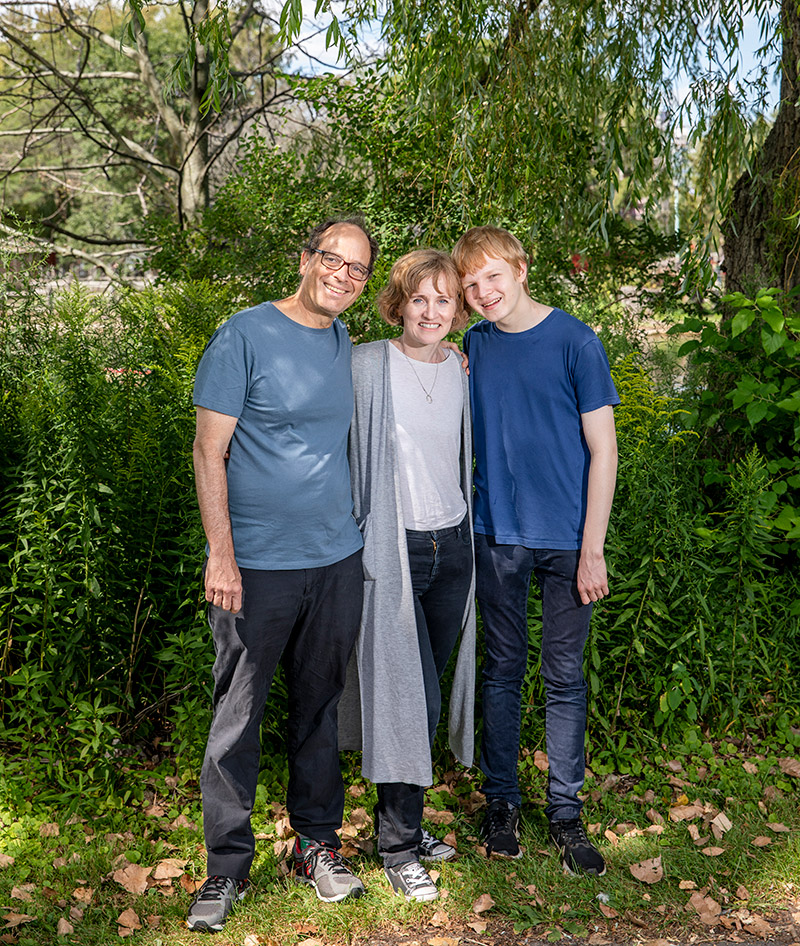
Canada is a pioneer in the world for its private refugee sponsorship program, which first came to widespread attention in 1979, during the Vietnamese “boat people” crisis. In the heady months before and immediately after the 2015 election, when doors were opened to more than 40,000 Syrian refugees, tens of thousands of Canadians joined sponsorship groups. This outpouring attracted global media attention and prompted the new government to pledge to export the private sponsorship model to other countries.
According to Audrey Macklin, a U of T law professor, some research suggests that privately sponsored refugees fare better in their new home than those who come through the government program. The reasons are clear: privately sponsored refugees arrive to a network of advocates who provide material support and also advice, contacts and instant social relationships. But, as Macklin noted in her 2017 Woodsworth Goldstein lecture, relatively little is known about the sponsors themselves. When she was named a 2017 Trudeau Fellow, Macklin’s research question was: How does the process of helping refugees become citizens transform the citizenship of sponsors?
“I want to know more about who sponsors are, why they sponsor, what is distinctive about private sponsorship and how the program affects sponsors,” says Macklin, who herself belonged to a group. “The policy reason for this inquiry is simple: if we think private refugee sponsorship is a good idea, then it matters not only that it confers benefits on refugees. It has to be perceived as good by and for the sponsors who do it, or they will not do it, do it again or promote it to others.”
For many of the sponsors, the experience offered a messy confection of feelings: rewarding, but also frustrating and challenging in unexpected ways. Groups of people who may have had only casual ties to one another took upon themselves enormous, time-consuming responsibilities. Often they did so in the absence of any formal structure beyond the legally binding contract they’d signed pledging to financially support their families for a year after they arrived.
David Carter-Whitney (BA 1986 Victoria), a civil servant who co-chaired one Toronto group, says he’s become friends with the family the group sponsored, soaked up a lot about Muslim culture and learned how to leverage the members’ significant social capital and networks to benefit the sponsored family. Through his United Church congregation, the group has opted to sponsor another refugee family. “Everything about it was a really wonderful experience,” he says.
But when Macklin and a research team evaluated the results of a survey that 530 sponsors filled out, other accounts emerged. While the vast majority felt the experience was deeply meaningful and that they’d do it again, many also recognized the power imbalances that are baked into the structure of the private sponsorship program.
The survey revealed that sponsors were typically middle-aged, middle-class and well educated, with more women involved than men. Once the refugees arrived in Canada, many of the sponsors found themselves thrust into what often felt like highly personal roles with the newcomers.
Macklin points out that sponsors’ education, economic independence, English (or French) fluency, experience, cultural knowledge and social capital equip them to support newcomers in a multitude of ways. But these same advantages they possess in relation to recently arrived refugees – coupled with newcomers’ financial dependence – mean that the relationship between sponsor and sponsored is, in a structural sense, unequal.
Senator Ratna Omidvar, who co-founded Lifeline Syria and regularly cautioned participants to tamp down expectations about establishing friendships with their families, heard some “pretty nasty” stories about the interactions: groups that pressured their sponsored families to work almost as soon as they arrived to minimize cost or, conversely, refugee families that had “out of whack” expectations about what the sponsors could provide materially.
“People had issues,” says Macklin. “It isn’t all happy romantic stories. But to a person, the experience was really meaningful.”
One of the families that Nagel’s group sponsored reported a very positive experience. Alaa Al Saleh settled in Canada in August 2018 with his wife, Hanaa Al Bitar, and two young sons. Although he has found learning English a challenge and has so far worked intermittently, he says the support he and his family have received from the group – which has included a furnished apartment; money for food; and help signing up for English classes, opening a bank account and obtaining a driver’s license – made a huge difference. “The group helped me and my wife start a life in this country, a good life,” he says. Al Saleh adds that he has found Canadians largely forgiving when it comes to the language barrier, and he’s hopeful for his family’s prospects. “If you don’t have the language, everybody accepts that: ‘OK, you can’t speak but you’re trying.’”
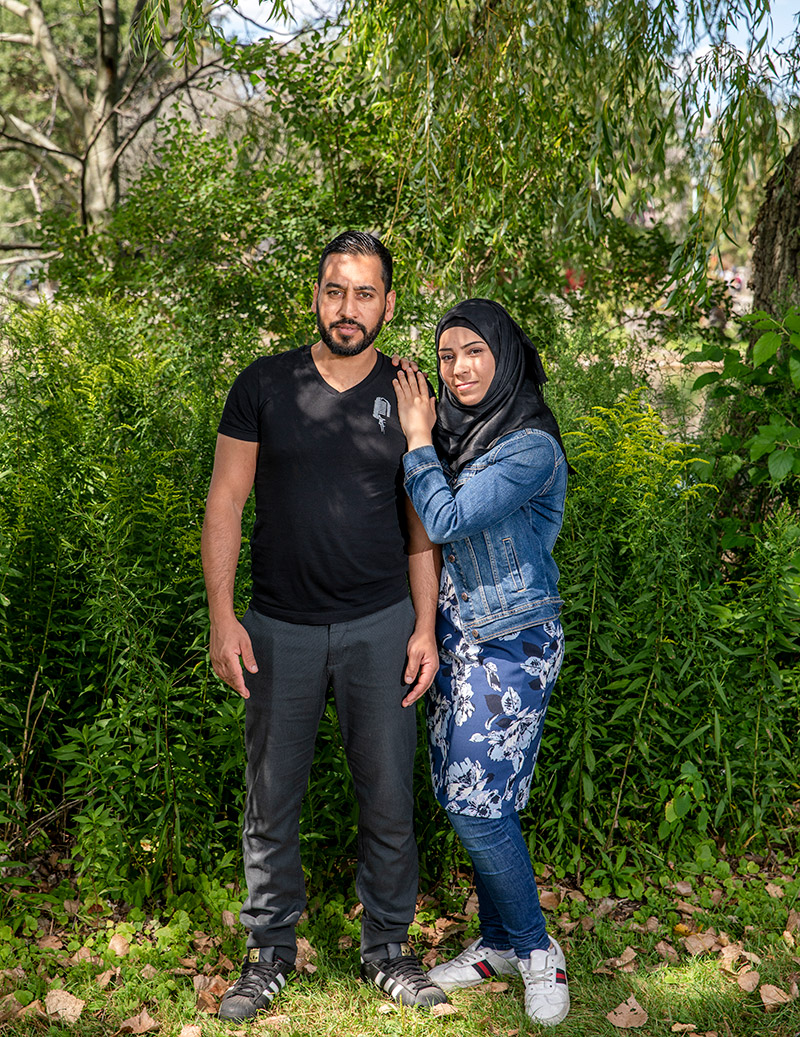
Macklin’s research aims to determine whether Canada’s private sponsorship program, which took shape during the mid-1970s Immigration Act reforms, has made Canadians more civic-minded and welcoming – or even if such policies represent an antidote to nativist politics. A credible recent public opinion poll shows that Canadians haven’t significantly changed their views on immigration despite a surge of partisan controversy over asylum-seekers in the U.S. making unauthorized crossings into Quebec and Manitoba. (The Liberal government soon began talks to close a legal loophole that allowed asylum-seekers to stay in Canada once they’d made it across the border.)
But besides the social dividends, Macklin has found herself pondering whether and how the private sponsorship program could be improved – a question that others have posed as well. Macklin identifies a few issues: finding ways to include volunteers who don’t have the funds to sponsor refugees; ensuring that increases in private sponsorship don’t give governments an excuse to cut funding for or reduce their commitment to public resettlement; and recognizing the inevitable pressure to enable the reunification of extended families.
Omidvar would make other tweaks, including more formal training for individuals and groups sponsoring refugees and required background checks for participants. She also recommends changes to the tax laws that would allow people to treat contributions to a private sponsorship effort as charitable donations. Governance of sponsorship groups should remain organic, she says, “but some capacity building should be put in place.”
Macklin, for her part, returns to what she sees as the bedrock question of how the personal relationships within the private sponsorship program affect individuals who have survived war, famine and flight before encountering Canadians armed with good intentions, social capital and cash, but scant experience of what is and isn’t required of them. “My sense is that precisely because refugees have been so disempowered by the experience of flight, they may be more, rather than less, sensitive to the power relations in sponsorship,” she points out. “Having arrived permanently, they want to reclaim a life in which they had an identity that was not about being a refugee, but about being a farmer, or being middle class, or being a respected elder in the community, or brother, or mother or student. The sponsors’ awareness of power imbalances inherent in sponsorship, and how everyone negotiates that while building relationships, matters a lot to the quality of the sponsorship experience.”
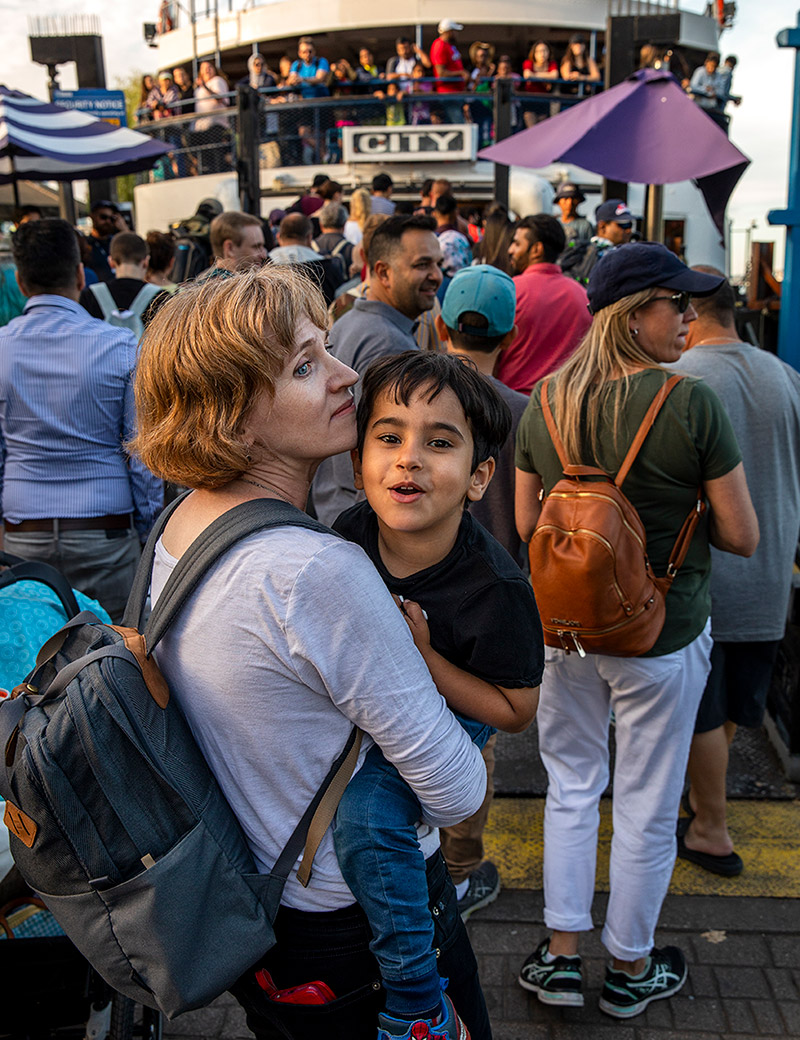
Pairing Up
Can we create better “matches” between sponsors and refugees?
Embedded in the structure of Canada’s sponsorship program is a thorny question: How do refugees and their sponsors get along? But for Craig Damian Smith, the associate director of the Global Migration Lab at the Munk School of Global Affairs and Public Policy, the more important question is: How does the quality of the relationship affect how well a refugee family establishes itself? Put differently, Smith wants to know if we can do a better job of pairing refugees and sponsors.
To that end, Smith and several collaborators – including behavioural economists at the Rotman School of Management, as well as at the University of Mannheim in Germany and Columbia University in New York – have created Pairity. The platform matches sponsors with refugees based on online surveys of individuals on both sides of the equation (members of a sponsorship group and members of the refugee household fill out one survey. Then one refugee household is sponsored). To generate matches, Pairity uses variables such as the distance between the homes of sponsors and refugees, labour market experience and interests.
Smith is testing Pairity through a pilot with the NGO Justice and Peace in the Netherlands, which randomly sorts newcomers into control groups and those matched based on survey results. Pairity’s effectiveness will be tested by assessing the success of refugees in areas such as labour market participation, language skills and community integration.


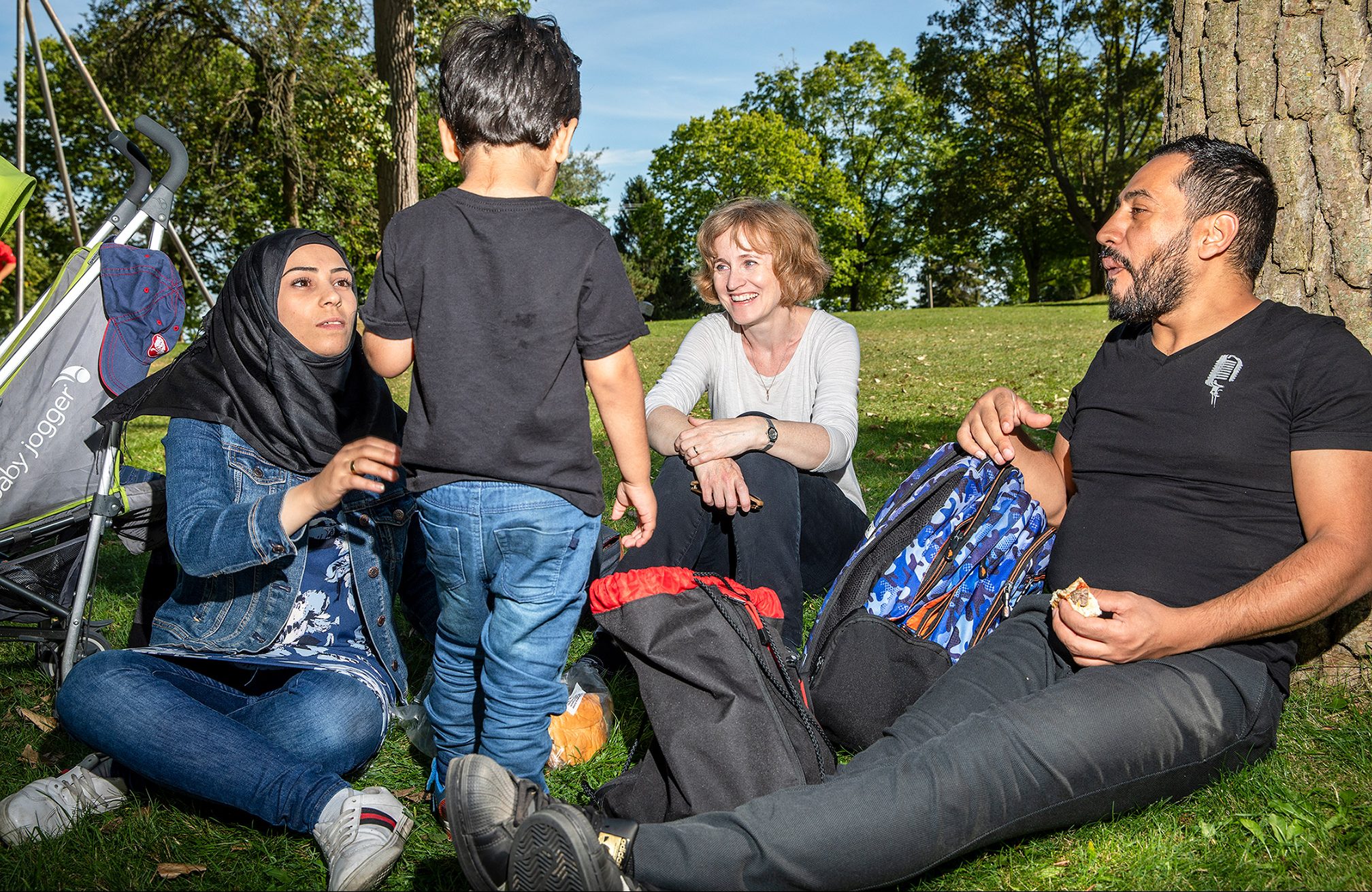
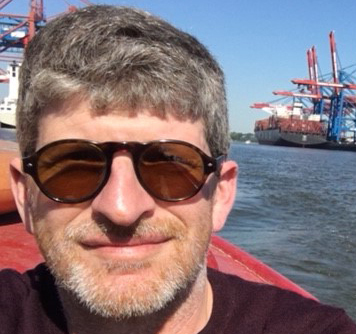
17 Responses to “ The Power of Good Intentions ”
Great article. I volunteer for a charitable organization in Vancouver. We’ve raised more than $250,000 for scholarships for post-secondary education for refugees. This article makes me wonder whether our awards are well named. How do the recipients of these awards see themselves? Maybe naming them “Refugee Awards” has some unintended effects. Food for thought.
Our church sponsored seven families from Syria. They arrived from a Lebanon refugee camp between March and September 2018. It has been a great experience, even with the language barrier. The language of love, care and hope always speaks louder.
The biggest challenge has not been the budget or language, but helping them find jobs -- which will enable them to build their credit score so that they can become independent.
Now that the one-year sponsorship period is over, we are looking for rental apartments. But without a credit score or secure job, it's almost impossible.
The government should dedicate some resources to help with the job search.
Thank you for this article. Our church sponsors a Syrian family. You've made me realize how it must feel to be a sponsored family.
My five siblings and I sponsored a family of four from Syria, after seeing and experiencing our parents sponsor an 18-year old from Vietnam in the 1970s. It has been a transformative experience for me, and I think for the family too. I appreciate the attention to power imbalances in this article, and it's great to hear about Pairity. We wish we could bring the extended families to Canada too. We have the will but not the money. Maybe there could be a program to match the will to money here in Canada.
I created a private settlement group with some friends and have settled three refugee families and two students. All the families are thriving. The tweaks to private sponsorship suggested in this article would add unneeded bureaucracy to an already time-consuming endeavour and would likely reduce the number of private sponsorship groups. We have not received any training apart from what is available online and things are fine. We live in a rural area, so mandatory training would be expensive.
Mandatory background checks would also be an unnecessary expense. Many settlement groups are community-based. We have no board of directors, no written policies and no insurance. But we do save lives. This system works and doesn't need added bureaucracy.
The most helpful thing I can think of would be the ability to work with a company like Canada Helps, which would allow us to offer charitable receipts without us being a registered charity. Government funding would also be welcome.
It would be better for many of these refugees to fight for democracy in their own countries. I am not in favour of my tax dollars being put toward programs I have not approved of. For generations, Canadians have built up this country through our taxes and hard work. We cannot afford to support others who have not contributed. To do so comes at the expense of our children's education and our heath-care system.
I have been part of a private sponsoring group in Nova Scotia and found this article most interesting. We began by bringing in one family of seven, and then a second smaller family related to them. Yes, the issue of power imbalance is a real one, requiring much sensitivity on both sides. Our experience has been very positive, but I am aware of other families in our local area where there have been very problematic issues. None of us can solve the crisis in Syria, but it feels good to have done something positive for a few people.
It is sad that the election campaign is producing negative talk about immigration, rather than trumpeting the welcoming of thousands of Syrians as one of the great successes of the past four years. Regarding tax receipts for donations: Although we were a mix of Christians, Jews and those with no active religious commitment, we were able to arrange for donations to be made through the local Anglican Church, which issued tax receipts and then passed the donations on to us.
Did anyone study/research the sponsorship that occurred in Canada after the Second World War? Our family was sponsored by relatives but those who did not have relatives were sponsored by strangers, hospitals, mines, lumber companies. To repay for the trip by boat from Europe, refugees signed contracts to work as maids, miners, lumberjacks for a certain number of years. Housing was apparently provided onsite. After the contract ended they were free to leave and live on their own.
Great article and important questions. It would be very helpful to have training and access to information about mental-health supports for refugees, for adults as well as children.
Great article. Could I have more information regarding how one becomes part of a group to privately sponsor refugees?
I want to suggest that you look into a group called Aura, a joint Anglican/United Church group that assists in the sponsorship process. They help sponsoring groups with training and preparation for their responsibilities. Our churches insist on background checks and include people who cannot necessarily afford to help monetarily. Our group had volunteers who drove our family to appointments, tutored when one of the family got work and couldn’t attend classes, set up opportunities for social interaction with the wider community, ran programs to educate the community.... The list could go on.
I am a refugee from the Second World War and was sponsored to come to Canada as a child in 1948 by relatives who lived in Toronto. My family later repaid my aunt and uncle for the cost of the Atlantic voyage. Those who did not have relatives were sponsored by people needing housekeepers. Hospitals, lumber and mine companies also sponsored refugees who had to sign work contracts for a few years until they repaid the cost of the trip.
I think we should keep government mostly out of it, with the exception of background checks on both sides. This is an issue of humanity and compassion. Also, can we be realistic? There will be inequalities and gaps. Refugees are arriving from a completely different country, with different values, laws and standard of life. And that’s okay. I’m sure they are more than thankful for having the opportunity to come to Canada. I’m a product of a refugee family from the mid-80s.
Our church group has been involved in private sponsorships for more than 30 years. We are fortunate to have an organization (AURA - Anglican United Refugee Association) that oversees our sponsorships and helps with the process. It also provides advanced training for our groups from Anglican and United Churches in the Toronto area and intervenes to provide wise counsel when things are not working well. On one occasion, when a sponsoring group fell apart about four months into the sponsorship year, AURA was able to find another group to provide support for the family for the remaining eight months until the sponsorship period ended. If you haven't already been in contact with AURA, I recommend that you reach out to them. They have a wealth of experience to share.
I am a lay pastor and in this past week I received an email from a 26-year-old Iranian refugee woman currently in Turkey, seeking (along with her family) to come to Canada. How can I find out more about Pairity?
Prof. Craig Damian Smith responds:
@Jenny Fehely: Pairity doesn’t do resettlement itself, but works with organizations that do. So the Iranian woman who is living in Turkey would have to go through traditional channels such as the UN High Commissioner there or Immigration and Citizenship Canada.
This article points to several important areas of research to improve the private sponsorship program. Anther potential line of inquiry would be the religious background and commitment of the private sponsors. The first private sponsorship agreement was negotiated with Mennonite Central Committee Canada, for a religious community with embedded history and ongoing commitment to refugee issues. Other religious groups joined the process. It is now a much wider network of civil society groups. There may well be blind spots in relevant religious communities.